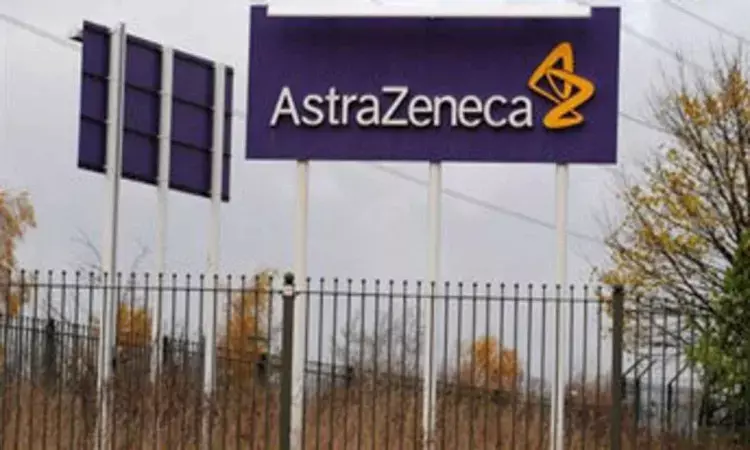- Home
- Medical news & Guidelines
- Anesthesiology
- Cardiology and CTVS
- Critical Care
- Dentistry
- Dermatology
- Diabetes and Endocrinology
- ENT
- Gastroenterology
- Medicine
- Nephrology
- Neurology
- Obstretics-Gynaecology
- Oncology
- Ophthalmology
- Orthopaedics
- Pediatrics-Neonatology
- Psychiatry
- Pulmonology
- Radiology
- Surgery
- Urology
- Laboratory Medicine
- Diet
- Nursing
- Paramedical
- Physiotherapy
- Health news
- Fact Check
- Bone Health Fact Check
- Brain Health Fact Check
- Cancer Related Fact Check
- Child Care Fact Check
- Dental and oral health fact check
- Diabetes and metabolic health fact check
- Diet and Nutrition Fact Check
- Eye and ENT Care Fact Check
- Fitness fact check
- Gut health fact check
- Heart health fact check
- Kidney health fact check
- Medical education fact check
- Men's health fact check
- Respiratory fact check
- Skin and hair care fact check
- Vaccine and Immunization fact check
- Women's health fact check
- AYUSH
- State News
- Andaman and Nicobar Islands
- Andhra Pradesh
- Arunachal Pradesh
- Assam
- Bihar
- Chandigarh
- Chattisgarh
- Dadra and Nagar Haveli
- Daman and Diu
- Delhi
- Goa
- Gujarat
- Haryana
- Himachal Pradesh
- Jammu & Kashmir
- Jharkhand
- Karnataka
- Kerala
- Ladakh
- Lakshadweep
- Madhya Pradesh
- Maharashtra
- Manipur
- Meghalaya
- Mizoram
- Nagaland
- Odisha
- Puducherry
- Punjab
- Rajasthan
- Sikkim
- Tamil Nadu
- Telangana
- Tripura
- Uttar Pradesh
- Uttrakhand
- West Bengal
- Medical Education
- Industry
AstraZeneca Tagrisso gets Japanese okay for early-stage EGFR-mutated lung cancer

New Delhi: AstraZeneca's Tagrisso (osimertinib) has been approved in Japan for the adjuvant treatment of patients with epidermal growth factor receptor-mutated (EGFRm) non-small cell lung cancer (NSCLC) after surgery. This approval by the Japanese Ministry of Health, Labour and Welfare was based on positive results from the global ADAURA Phase III trial.
While up to 30% of all patients with NSCLC may be diagnosed early enough to have surgery with curative intent, recurrence is still common in early-stage disease. Historically, over half of patients diagnosed in Stage II, and approximately three quarters of patients diagnosed in Stage III, have experienced recurrence within five years of resection. In Japan, lung cancer is the leading cause of cancer death and among patients with NSCLC, more than 35% have tumours with an EGFR mutation.
Masahiro Tsuboi, MD, PhD, Chief and Director, Department of Thoracic Surgery & Oncology, National Cancer Center Hospital East, Japan, and principal investigator in the ADAURA trial, said: "Osimertinib was first approved in Japan over six years ago and it has since played a critical role in our treatment of patients with lung cancer, particularly given the high prevalence of EGFR mutations among Japanese patients. This approval of osimertinib for early-stage lung cancer means these patients will now have, for the first time, a targeted therapy option available earlier in their treatment journey, after surgery and chemotherapy as indicated."
Dave Fredrickson, Executive Vice President, Oncology Business Unit, AstraZeneca, said: "Patients diagnosed with lung cancer in Japan are more likely than patients anywhere else in the world to be alive five years after their diagnosis. Yet lung cancer remains the country's leading cause of cancer death. With this approval of Tagrisso, early-stage lung cancer patients in Japan now have a targeted treatment option available after surgery that can dramatically change the course of their disease, potentially helping them live cancer-free even longer."
In the ADAURA trial, Tagrisso demonstrated a statistically significant and clinically meaningful improvement in disease-free survival (DFS) in the primary analysis population of patients with Stage II and IIIA EGFRm NSCLC. The trial also showed a statistically significant and clinically meaningful improvement in DFS in the overall trial population of patients with Stage IB-IIIA disease, a key secondary endpoint. These results were published in The New England Journal of Medicine in October 2020.
The ADAURA trial is ongoing to assess overall survival (OS). Final DFS results will be presented at the upcoming European Society for Medical Oncology (ESMO) Congress 2022.
Tagrisso is approved to treat early-stage lung cancer in more than 85 countries, including in the US, EU and China, and additional global regulatory reviews are ongoing. In Japan, this is the third approved indication for Tagrisso following previous approvals for 2nd-line T790M and 1st-line EGFRm NSCLC in March 2016 and August 2018, respectively.
Read also: AstraZeneca India breast cancer drug lynparza gets DCGI okay
Ruchika Sharma joined Medical Dialogue as an Correspondent for the Business Section in 2019. She covers all the updates in the Pharmaceutical field, Policy, Insurance, Business Healthcare, Medical News, Health News, Pharma News, Healthcare and Investment. She has completed her B.Com from Delhi University and then pursued postgraduation in M.Com. She can be contacted at editorial@medicaldialogues.in Contact no. 011-43720751


